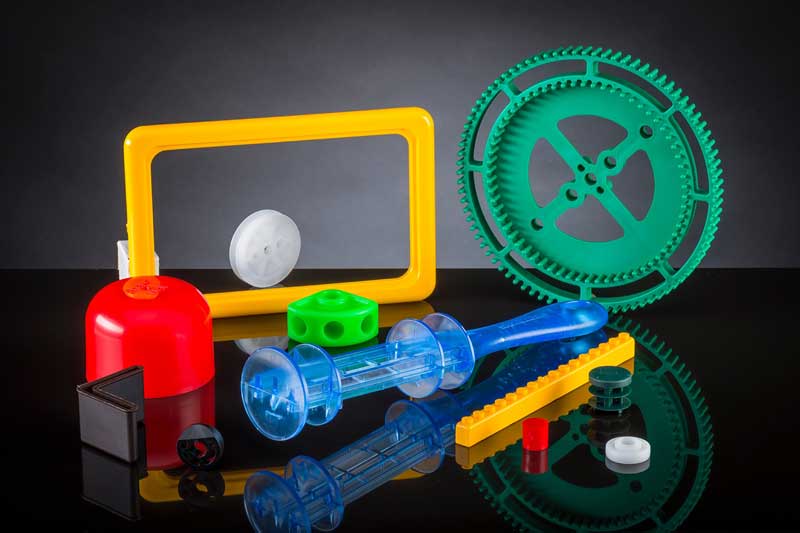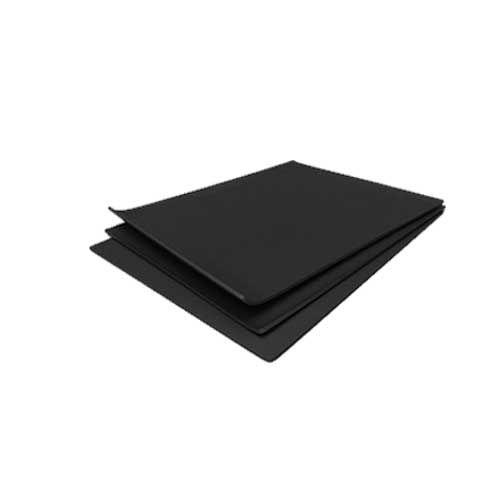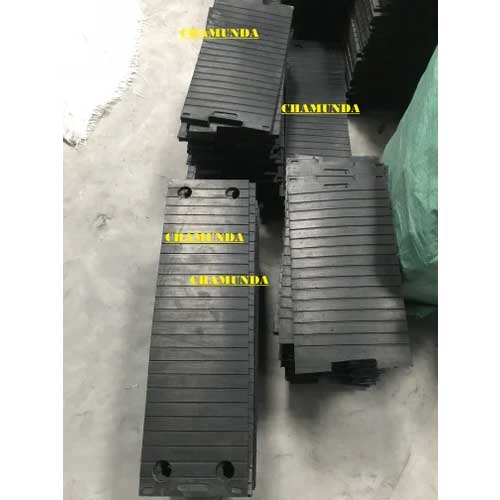Schedule a Call Back
Ushering another era of growth in plastics processing
 Articles
Articles- Feb 15,23

A strong manufacturing industry is the foundation of any growing economy, and in fact is the engine of economic growth and the muscle behind a country’s standing in an international scenario. Pursuing self-reliance since the post-independence era, Indian manufacturing prowess has gone from strength to strength. However, it was post liberalization of the Indian economy in the 90s that India’s industrial revolution made a leapfrog growth that was further enhanced by the subsequent IT revolution. Today, while India has a strong presence in services exports, our manufacturing prowess is witnessed across sectors including plastics. Presently, India's manufacturing sector contributes 14.43 per cent (2021) to the GDP*. India prides itself on being the sixth largest manufacturer in the world.
From its very humble beginnings in 1950, production of plastics has grown from 1.5 million tonnes to over 368 million tonnes presently. As compared to the global average, despite having the highest growth rate of 16 per cent versus 10 per cent in China, the per capita consumption of plastics remains low at 11 kg in comparison to USA which stands at 138 kg and a global average of 28 kg**.
Since 1950, global production of plastics has been growing at the rate of an average of 8.2 per cent per annum with Indian plastics exports itself reaching a staggering $ 13.4 billion in FY 21-22 from a modest $ 16 million in 1955.
Plastics processing in India: A story of grit and growth
The journey of the Indian plastics industry has been phenomenal to say the least and all figures simply imply huge potential for growth for this industry sector. The global export market for plastics is valued at $ 1.2 trillion with India’s share being just about 1.1 per cent with the potential to garner 3 per cent by 2025.
The Indian plastics industry today boasts of over 50,000 processing units and employs over five million people. With polymer production growing at 7.3 per cent in the last five years, vast domestic consumption, exports to over 200 countries, & increase in foreign direct investments, leading global companies from Europe, USA, Japan, China and Taiwan have been setting up their manufacturing facilities in India.
Dynamic policies for ease of doing business, low import duties and the active push by the Government vis-à-vis negotiating and signing trade agreements for economic cooperation have further bolstered growth of the plastics industry.
Within plastics, packaging is one of India’s fastest growing sectors, and shares space among some the leading countries in the world. Other sectors within plastics that India have gained much recognition include automobile, FIBC, films and sheets, medical & pharmaceutical, floor coverings, pipes and fittings and more. Being a versatile material, sectors such as aerospace and defence, as well as automotive are witnessing growth is adoption of plastics and composites. The post pandemic era was testimony to India’s capabilities as the country became a leading supplier of medical plastics.
Government of India: Catalysing manufacturing growth
Presently, the manufacturing sector in India has a low share of around 15 percent in the GDP and by accelerating the key growth drivers already defined in the National Manufacturing Policy of India, the sector has the potential to achieve a 25 percent share in India’s GDP, creating 100 million jobs, providing depth to manufacturing, enhancing global competitiveness and ensuring environmental sustainability.
The Government of India has triggered numerous initiatives such as Make-in-India, Atmanirbhar Bharat, Skilling India, Zero Defect-Zero Effect (ZED), Digital India, and many more for creating a momentum in economic growth, making it imperative for the manufacturing sector to become more competitive, improve domestic consumption and boost exports.
With the rapid pace of technology development, the manufacturing industry is seeing high adoption of big data and analytics to help them predict the future and thus survive and thrive during challenging times. Turning towards Internet of Things (IoT), artificial intelligence (AI), automation and Industry 4.0, the segment has been able to tide over the supply chain and manpower challenges of today and such adoption is only set to grow. Infusing technology, creating a culture of innovation, and encouraging technical collaborations, alliances & partnerships have been the impetus behind India’s manufacturing growth and usher in a new era of industrialization.
Progressing plastics processing
With growing disposable incomes and consumption, the plastics industry in India has opened doors to enormous development across the entire value chain, right from polymer producers to machine manufacturers to processors to ancillary industries.
Adoption of Industry 4.0, digitization, automation, big data and analytics is widely used by the industry; thus, setting the base for manufacturing growth in the segment. The industry also sees greater investments in R&D and innovation and many processors today hold global patents for products ranging from packaging to engineering plastics.
Plastics processing industry is largely made up of MSME businesses and the Government’s plans to establish plastics parks across India with eight such projects being in various stages of completion, will boost the segment. The levelling of logistics costs and focus on infrastructure development, as well as the growing number of institutes for higher & technical education and research in the field of polymer science & technology will further growth of the sector.
Finance is the backbone of any industry and most crucial to growth. Announcements and creation of various policy measures and schemes and incentives from the various ministries including the Finance Ministry, Ministry of Commerce, Ministry of MSME, amongst others proved crucial not only during the pandemic, but have been integral to ensuring India’s manufacturing industry growth. Furthermore, initiatives such as Atmanirbhar Bharat, Make in India, etc aim to instil not just nationalistic pride but also boost the manufacturing ecosystem on India.
Barriers to trade
The plastics industry has consistently expanded in India increasing the amount and type of plastic produced. The nature of the plastics industry provides the backdrop for understanding the policy framework that could direct the future of plastics in India and more importantly enhance the export of plastics.
To explain, we need to foremost understand that a large portion of the industry is disorganised and fragmented with few organised players. Of a sector comprising nearly 50,000 processors with 90 per cent falling under the MSME sector, only about 2800 are into exports. In order for India to meet the vast demands of global economies, the export base must grow significantly.
Raw material availability and fluctuations in polymer pricing is a major challenge faced by Indian processors. Currently, only about 20 per cent of the overall raw material demand is met through domestic production. The rest is through imports. In fact, specialty polymers are entirely imported and these are integral to the production of engineering plastics which generally see high value applications. India has earned much recognition in engineering plastics for quality, efficiency and innovation. Being largely dependent on imports exposes processors to not only disruption in supply, as was seen in the recent past when polymer producers in USA shut operations owning to adverse weather; but also fluctuating polymer costs. The high cost of polymers impacts domestic outputs, in many cases making it cheaper to import value added products. We have all seen cheaper Chinese imports in India, a factor that has much impact on MSME players. Imposition of BIS on raw material is another cause of concern among processors in India which will impact the already high price of polymers.
On the other hand, high cost of finance as compared to global counterparts, high freight and logistics, low technology base, low investments in R&D and innovation, and procedural challenges related to EPR compliance are some of the other concerns that impact the overall development of the industry.
Creating sustainable environments
Sustainability is dominating topic in the plastics industry today and underlines every aspect of the industry’s practices and processes. The scope of the term has broadened and covers not only reuse and recycling of plastics, but also the manufacturing processes itself. This includes energy saving, low carbon emission, water conservation, social and economic sustainability and much more.
Globally, economies are adopting policy frameworks that promote sustainable manufacturing as “the creation of manufactured products through economically sound processes that minimize negative environmental impacts while conserving energy and natural resources” (United States Environmental Protection Agency). Sustainability also includes increased safety for employees, local communities, and the product itself.
Today top brands around the world have committed to increase the recycled plastic content in their packaging to at least 25 per cent by 2025 as well as comply with globally recognised sustainability practices. And though completely sustainable manufacturing may be still at its nascent stage compared to global counterparts, the trend is gaining traction.
In line with the Hon’ble Prime Minister Narendra Modi recent pledge at the COP26 Summit that India will cut its emissions to net-zero by 2070, the manufacturing sector has already been working steadily to reduce its carbon & emissions footprint. The plastics industry too has been making increased efforts to comply with the new PWM Rules as well as EPR to minimize the environmental impact of the products, materials, and processes they have so they can help drive the circular economy.
The future shines bright
Despite the odds, the plastics industry has been growing at a steady pace and opportunities remain ripe for both domestic processors as well as Indian plastics exports considering the disruption in global supply chains.
With efforts being made to boost manufacturing, increase production of raw material, reduce import duties, increase BCD on value added plastics, offer export incentives and schemes, and very importantly fast track trade agreements, build infrastructure and policy frameworks to support robust manufacturing, the present bottlenecks can be overcome, paving the way for both increased domestic production and exports. The industry continues move towards greater automation and investments made in building capacities will go a long way in helping India uplift the quality of Indian plastics as well as meet the diverse needs of various geographies.
The growth of the Indian plastics and its allied industries such as automotive, defence, aerospace, medical plastics and more will also not only help in greater employment generation and entrepreneurship but also pave the way for skill development and technical education (in polymer engineering and processing) in the country.
Export Vision 2025
As an export promotion council, PLEXCONCIL has been focused on promoting India’s plastics exports for over six decades. Aligned to our honourable PM Shri Narendra Modiji’s focus on increasing exports to $ 1 trillion and for plastics our focus will be to double the current numbers to $ 25 billion by 2025 by adopting a multi-pronged approach to promoting plastics globally. We have a well-drawn plan to increase participation in exhibitions, organise RBSMs (Reverse Buyer Seller Meets) with newer markets, initiate dialogues with potential customers through local Embassies in uncharted and high potential markets and more.
Efforts are also being made to bring more manufacturers into exports and increase India’s our global footprint. Numerous capacity building programmes are being held across manufacturing clusters with DGFT, CBIC and more to educate processors and hand hold first time exporters. Another focus will be to push value added plastics products as a focus area. We plan to continue having seminars and discussions with various exports affiliated government bodies to make exports easier, faster and more beneficial. Furthermore, we will also focus on pushing the agenda of ZED wherein the Indian manufacturers create a name for themselves as zero defect and quality production houses.
Conclusion
Potential for the India’s plastics processing still remains largely untapped and by focusing on sustainable manufacturing, not only can the industry contribute immensely to environmental protection, but more importantly create a healthy ecosystem for business growth and employment. This can be achieved by leveraging the technologies to develop and build better and sustainable products which in turn benefit the environment and society at large.
https://www.businessworld.in/article/Evolvement-Of-Manufacturing-Industry-Since-Independence/30-09-2021-406793/
https://cdn.cseindia.org/attachments/0.57139300_1570431848_Factsheet1.pdf
About the author:
Sribash Dasmohapatra is the Executive Director of the Plastics Export Promotion Council (PLEXCONCIL). He is a dynamic professional with over 30 years of experience with various reputed organisations for strategic business growth & expansion, establishing of systems and procedures and growing revenue streams. Throughout his over a three-decade long career, he has held leadership positions at large corporate houses, industry bodies and government agencies.
Related Stories

India’s Manufacturing Mission: What Make in India Got Right and Wrong
A decade after its launch, Make in India shows sectoral progress but structural gaps remain. As global manufacturing turns VUCA, the next phase must focus on value addition, jobs and ecosystems, say..
Read more
India’s Manufacturing Mission: What Make in India Got Right and Wrong
A decade after its launch, Make in India shows sectoral progress but structural gaps remain. As global manufacturing turns VUCA, the next phase must focus on value addition, jobs and ecosystems, say..
Read more
India’s Top 100 Engineering Companies 2025 by Smart Manufacturing & Enterprises
FY25 unfolded against a challenging external setting. Despite the global headwinds, India posted real GDP growth of 6.5 per cent in FY2024–25. In this edition, Smart Manufacturing & Enterprises (S..
Read moreRelated Products

Rubber Sheets Material
Talbros Sealing Material Pvt Ltd offers a wide range of rubber sheets materi Read more

Rail Rubber Pad
Chamunda Enterprise offers a wide range of rail rubber pad.

Insulation Polyester Film
TMA International Private Limited offers a wide range of insulation polyester film.














